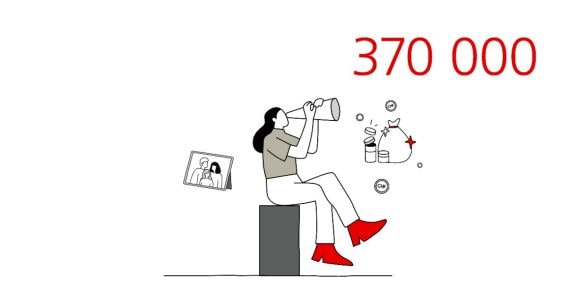Women’s Wealth in figures – Family
CHF 370,000: the cost of raising a child
The birth of a child can impact the family budget significantly. The important thing is to keep an eye on expenses.

![]()
header.search.error
Women’s Wealth in figures – Family
The birth of a child can impact the family budget significantly. The important thing is to keep an eye on expenses.

Why is this figure important?
Children are expensive. But exactly how expensive? The Zurich Youth Welfare Office has calculated the financial cost of having a child. The figure provides food for thought. Parents spend an average of 370,000 francs per child by the time they reach the age of 21. This does not include the costs of external childcare. Nor does it include indirect costs resulting from a lower income and unpaid care work. What are the major expenses, and how can financing for them be planned?

Learn more about finance
Would you like to improve your knowledge of alternative investments? Then subscribe to our “Alternative investments” learning path now.
The teenage years are the most expensive
According to the Zurich table of child-related costsClick here to go to the Zurich table of child-related costs.the most significant expenses are accommodation, food and leisure. The costs are lower for a young child at 1,300 francs a month. From primary school age, when hobbies, musical instruments and pocket money come into the picture, the costs rise to 1,500 francs. Teenagers are the most expensive at 1,800 francs a month, as their expectations regarding clothes and leisure increase. These relative costs decrease with each additional child, although under some circumstances new ones also arise. This is especially true if further education, a stay abroad or university are on the cards.
For families where both parents work and the grandparents cannot regularly provide childcare, the cost of external childcare becomes significant. According to SwissinfoClick here to read the article on swissinfo.ch. Swiss nurseries are among the most expensive in the world. The cost of three days’ childcare per week can be up to 2,000 francs per month.
Indirect costs place a significant additional strain on the family budget
Raising a child also leads to indirect costs. As a rule, at least one parent reduces their working hours, which leads to a lower household income. According to the Swiss Labor Force Survey (SLFS) from 2021Click here to go to the Swiss Labor Force Survey 2021. mothers spend an average of five years away from the labor market before they return. 78% of working-age mothers work part time, around half of whom work between 50% and 80% of full-time hours. Around a third work under 50%. The consequences often continue to be felt after the child has left home, for example, when a long break from the workplace has a negative effect on the parent’s career, also resulting in a lower income in old age.
Plan household expenditure carefully
Raising a child in Switzerland costs money. However, good financial planning allows the short and long-term expenses to be calculated. This also makes it easier to implement additional financial wishes and requirements. The subject of children is an emotional one, however parents-to-be should be sure to take the time to talk about the future expenses and create a budget.
Because a personal conversation is worth a lot
What can we do for you? We’re happy to address your concerns directly. You can contact us in the following ways: